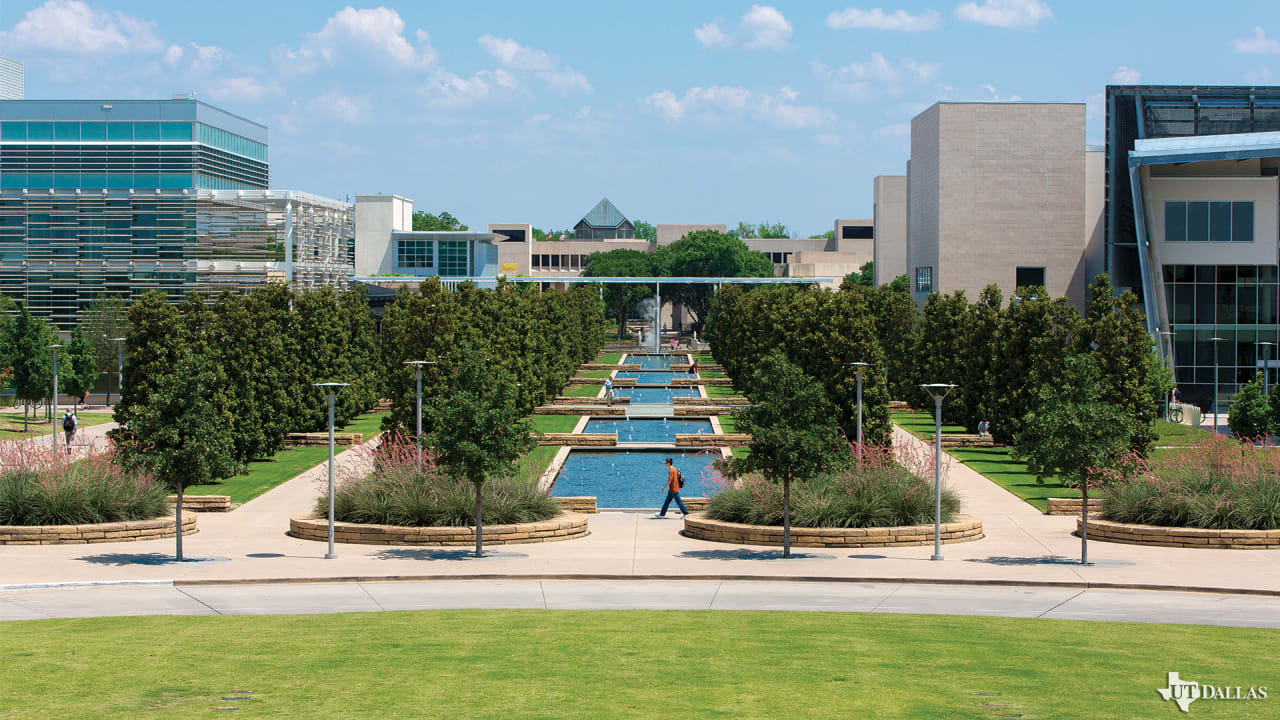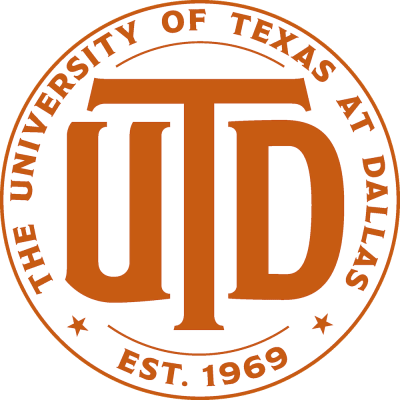
Doctor of Audiology
The University of Texas at Dallas

Key Information
Campus location
Richardson, USA
Languages
English
Study format
On-Campus
Duration
4 years
Pace
Full time
Tuition fees
USD 18,276 / per semester
Application deadline
Request info
Earliest start date
Jul 2024
Introduction
The School of Behavioral and Brain Sciences’ Doctor of Audiology degree program is one of the nation’s most respected and stands at No. 2 in the most recent ranking by U.S. News & World Report. The Doctor of Audiology (A.u.D.) program is accredited by the Accreditation Commission for Audiology Education (ACAE) and the Council on Academic Accreditation in Audiology and Speech-Language Pathology (CAA). This degree focuses on clinical preparation in the identification, diagnosis, and treatment of hearing disorders, as well as rehabilitation of hearing loss.
The program is highly competitive, with an acceptance rate of less than 10 per cent. Graduates have a 100 per cent pass rate on the PRAXIS, the national certification examination in audiology. The program offers students unique experiential opportunities. These include supervised hands-on clinical service practicum across the scope of practice, in diverse clinical settings, and across the lifespan of the patient. A.u.D. students are given extraordinary clinical experiences at the two UT Dallas Callier Center campus sites, as well as with various clinical, hospital, private practice, and school systems within the Dallas-Fort Worth area. Students complete a required mentored research experience, often resulting in presentations at state, national, or international professional meetings. Students are encouraged to take advantage of additional opportunities to participate in faculty research laboratories. The faculty includes internationally acclaimed audiologists and hearing scientists who actively participate in teaching, research, publishing, and professional activities.
The program’s mission is to guide students in attaining the essential knowledge and skill for entry into the practice of audiology. The commitment to provide the breadth and depth of classroom and practical experiences is consonant with each student’s developing interests and career goals. Career preparation is supported through a comprehensive curriculum, innovative and collaborative clinical services on campus and in the global community. We maintain an active program of research in understanding, treating, and preventing disorders associated with auditory and vestibular impairments. Students interested in parallel research training are encouraged to apply to enter the Ph.D. program in Communication Sciences and Disorders.
Accreditation
The University of Texas at Dallas Doctor of Audiology Program is accredited by the Accreditation Commission for Audiology Education (ACAE), Office at the American Academy of Audiology, 1480 Commerce Park Drive, Suite 220, Reston, VA 20191, 703-226-1056. The University of Texas at Dallas Doctor of Audiology Program is accredited by the Council on Academic Accreditation in Audiology and Speech-Language Pathology (CAA) of the American Speech-Language-Hearing Association, 2200 Research Boulevard, #310, Rockville, MD 20850, 800-498-2071 or 301-296-5700.
Admissions
Scholarships and Funding
Financial Aid
The financial support of full-time doctoral students in the A.u.D. program is awarded through graduate student assistantships and tuition scholarships. Admitted students are automatically considered for these sources of financial aid.
Other information on financial aid for graduate students is available on the UT Dallas graduate admissions page.
Curriculum
Degree Requirements
The A.u.D. the clinical doctoral program is a four-year program that requires a minimum of 100 semester hours from four core areas. The typical program plan is an 11-semester sequence.
Students complete cumulative, formative assessments during the first three years of the program, including clinical competency checks and a two-day, written, and oral examination. During the second year of the program, each student works closely with a faculty mentor in writing a substantive literature review, designing an empirical research project, and submitting an application to the Institutional Review Board (IRB) for this project. Projects must be completed and presented during the third year of the program.
The UT Dallas graduate catalog provides information on degree requirements for the A.u.D.; for updates please contact [email protected]. The university’s course look-up site, CourseBook, describes some of the program’s specific courses. The Office of Graduate Studies provides additional information on academic and other policies.
Students who complete the A.u.D. degree will meet the academic and clinical education requirements for Texas state licensure in audiology; graduates will be eligible for certification by the American Board of Audiology (ABA) after licensure and upon completion of 2000 supervised hours. Graduates of the program will meet qualifications for the American Speech-Language-Hearing Association (ASHA) Certification of Clinical Competence in Audiology (CCC-A) if they elect to complete the 4th year externship under the supervision of a state-licensed audiologist who holds current ASHA CCC-A.
Opportunities for Research Degree (Ph.D.)
The A.u.D. can be pursued in parallel to the Ph.D. when dual clinical and scientific training are necessary for clinical and translational research career development. A highly individualized program plan is developed for each dual A.u.D./Ph.D. student based on research interests and timelines.
Most of our A.u.D./Ph.D. students apply first to the A.u.D. program; after developing an interest in research, they later apply to the Ph.D. program. Some students apply to both degree programs in parallel. Other students apply to the Ph.D. program and after beginning to develop clinical or translational research interests, they later apply to the A.u.D. program. The A.u.D. and Ph.D. program heads will work closely with A.u.D./Ph.D. students and their mentors to assure timely progress on Ph.D. milestones as well as the appropriate progression through an extended (more than 4 years) A.u.D. program plan.
Course Requirements
Required Courses (100 semester credit hours)
- Foundation: 25 semester credit hours
- AUD 6V20 Laboratory Procedures in Audiology and Hearing Science (taken 5 times)
- AUD 6303 Hearing Science
- AUD 6305 Anatomy and Physiology of Audition
- AUD 6306 Speech Science
- AUD 6310 Advanced Clinical Audiology
- AUD 6311 Diagnostic Audiology
- AUD 6216 Audiologic Rehabilitation for Adults
- AUD 6318 Pediatric Audiology
Doctoral Core: 28 semester credit hours
- AUD 6113 Grand Rounds (taken 4 times)
- AUD 6352 Medical Audiology
- AUD 7282 Issues in Mentoring and Counseling
- AUD 7321 Theories of Amplification
- AUD 7324 Seminar in Cochlear Implants and Technology for Persons with Hearing Impairments
- AUD 7326 Aural Habilitation of Children with Hearing Impairments
- AUD 7327 Evaluation and Fitting of Amplification Systems
- AUD 7338 Research in Audiology
- AUD 7220 Tinnitus
- AUD 7253 Clinical Electrophysiology
Advanced: 19 semester credit hours
- AUD 6114 Instrumentation
- AUD 7228 Hearing Loss Prevention
- AUD 7240 Auditory Processing Disorders and other Advanced Topics in Audiology
- AUD 7351 Physiologic Assessment of Vestibular System
- AUD 7310 Professional Issues in Audiology
- AUD 7325 Intensive Auditory Rehabilitation for Adult Hearing Loss
- AUD 7205 Auditory Pharmacology
- Doctoral Elective(s) in A.u.D. or related field (3 semester credit hours)
Experiential: 28 semester credit hours
- AUD 7280 Doctoral Practicum in Audiology (taken 8 times)
- AUD 8V80 Individual Research in Audiology (taken 3 times)
- AUD 8V97 Doctoral Internship in Audiology (taken 3 times)
Out-of-Field Students
Students entering the program are expected to have completed 3 credits in each of the following disciplines as part of their undergraduate program: Math/Statistics, Life Science, Physical Science, and Speech/Language Development. Students who lack this undergraduate preparation are required to complete this coursework prior to arriving for Fall enrollment, or as additional corequisite coursework, to fulfil these requirements. Students may take these courses at The University of Texas at Dallas prior to the beginning of the program, or concurrently during AuD courses.
Students are advised that participation in clinical rotations mandates some personal expense. All students must obtain lab coats and professional liability insurance. Off-campus clinical rotations and externships may have additional expenses such as a criminal background check, drug screening, TB screening, chickenpox titer, hepatitis vaccination, CPR certification, and fingerprinting. Students excluded from off-campus sites for any reason may be unable to complete all degree requirements.
Program Outcome
Doctor of Audiology (A.u.D.): The A.u.D. the degree offers broad-based professional preparation in audiology within an environment supporting an active program of clinical services and research. Students receive comprehensive exposure to clinical methods and procedures across the scope of practice in audiology and to the scientific foundations from which clinical approaches are derived. Clinic rotations are provided at the Callier Center and medical and educational settings throughout the Dallas-Fort Worth Metroplex.
A.u.D./Ph.D. degree track: Students who are interested in combining clinical and research training may combine the AuD with the PhD in Communication Sciences and Disorders. Students must apply separately to the PhD program to be considered.
Career Opportunities
Graduates of the program seek positions such as: audiologist in academic, private practice, industry, or medical settings; researcher or professor.
Facilities
English Language Requirements
Certify your English proficiency with the Duolingo English Test! The DET is a convenient, fast, and affordable online English test accepted by over 4,000 universities (like this one) around the world.